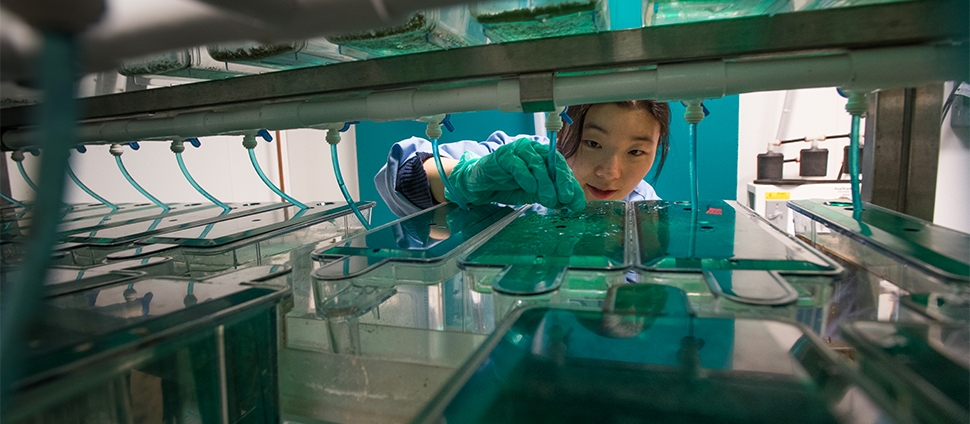Document Type
Article
Publication Date
2019
Publication Title
Biophysical Journal
Abstract
The use of super-resolution microscopy in recent years has revealed that proteins often form small assemblies inside cells and are organized in nanoclusters. However, determining the copy number of proteins within these nanoclusters constitutes a major challenge because of unknown labeling stoichiometries and complex fluorophore photophysics. We previously developed a DNA-origami-based calibration approach to extract protein copy number from super-resolution images. However, the applicability of this approach is limited by the fact that the calibration is dependent on the specific labeling and imaging conditions used in each experiment. Hence, the calibration must be repeated for each experimental condition, which is a formidable task. Here, using cells stably expressing dynein intermediate chain fused to green fluorescent protein (HeLa IC74 cells) as a reference sample, we demonstrate that the DNA-origami-based calibration data we previously generated can be extended to super-resolution images taken under different experimental conditions, enabling the quantification of any green-fluorescent-protein-fused protein of interest. To do so, we first quantified the copy number of dynein motors within nanoclusters in the cytosol and along the microtubules. Interestingly, this quantification showed that dynein motors form assemblies consisting of more than one motor, especially along microtubules. This quantification enabled us to use the HeLa IC74 cells as a reference sample to calibrate and quantify protein copy number independently of labeling and imaging conditions, dramatically improving the versatility and applicability of our approach.
Volume
116
Issue
11
First Page
2195
Last Page
2203
DOI
doi.org/10.1016/j.bpj.2019.04.026
Rights
©2019 Biophysical Society
Version
Version of Record
Recommended Citation
Zanacchi, Francesca Cella; Manzo, Carlo; Magrassi, Raffaella; Derr, Nathan D.; and Lakadamyali, Melike, "Quantifying Protein Copy Number in Super-Resolution Using an Imaging Invariant Calibration" (2019). Biological Sciences: Faculty Publications, Smith College, Northampton, MA.
https://scholarworks.smith.edu/bio_facpubs/61


